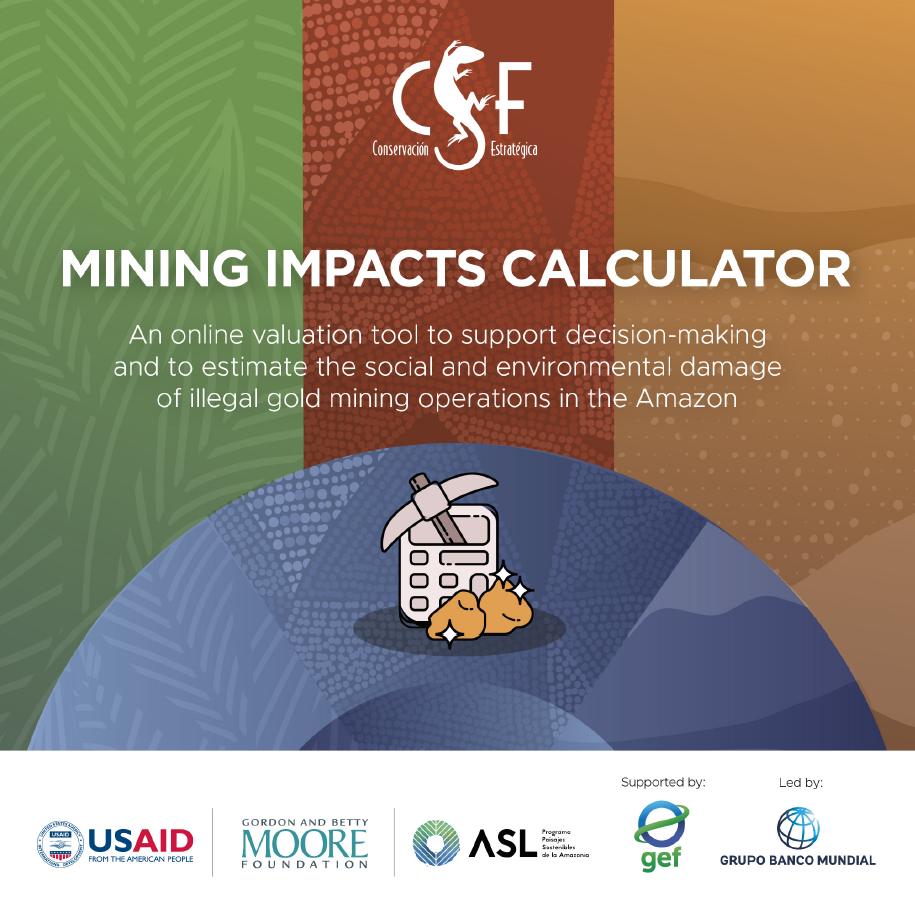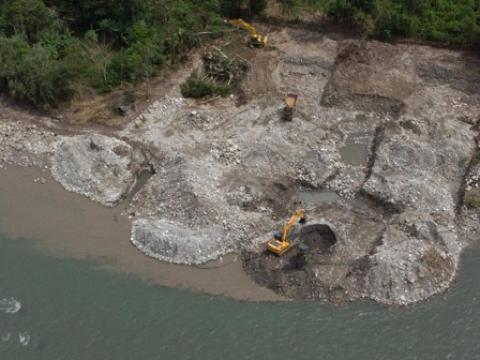Collectively Tackling Mercury use in Illegal Gold Mining: Reflections from Brasília and the Mining Impacts Calculator Workshop
Two weeks ago, I joined a webinar hosted by the World Bank for the Amazonia Viva team on the development and use of the Mining Impacts Calculator in the Amazon. There was strong interest from participants, and I was particularly struck by how IBAMA, Brazil’s environmental enforcement agency, is actively using the tool to impose fines on violators engaged in illegal gold mining.
Last Wednesday, I attended a follow-up, all-day workshop in Brasília, hosted by Brazil’s Federal Public Prosecutor’s Office (MPF) and the Amazon Cooperation Treaty Organization (OTCA), with support from the World Bank’s Amazon Sustainable Landscapes program and the Global Environmental Facility. The event brought together representatives from seven Amazon basin countries to discuss regional strategies to combat illegal gold mining and the use of mercury—a shared and growing environmental and human rights threat. The setting itself was striking: Brasília is a planned city full of futuristic white buildings designed by Oscar Niemeyer. The venue—MPF’s headquarters—was no exception, with two cylindrical glass towers appearing to float above the ground.
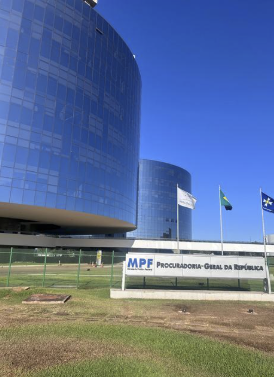
The evening before the workshop, I had the chance to speak with two of the federal prosecutors, including Gustavo Kenner. I peppered them with questions I hadn’t been able to ask during the World Bank webinar. Both were eager to share the progress they’ve made. One fact hit me hard: over $50 billion in fines have been levied against companies involved in illegal gold mining—often through networks of artisanal miners operating on Indigenous lands such as the Munduruku and Yanomami territories. However, securing payment for those fines has proven difficult, so the government has adopted a new strategy—seizing assets while cases move through the courts.
With gold selling at over $1,000 per gram, the financial incentives for illegal mining are powerful. To curb the practice, Kenner emphasized that enforcement must create real economic consequences for violators—penalties that reflect actual damages to rivers, forests, food sources, and human health.
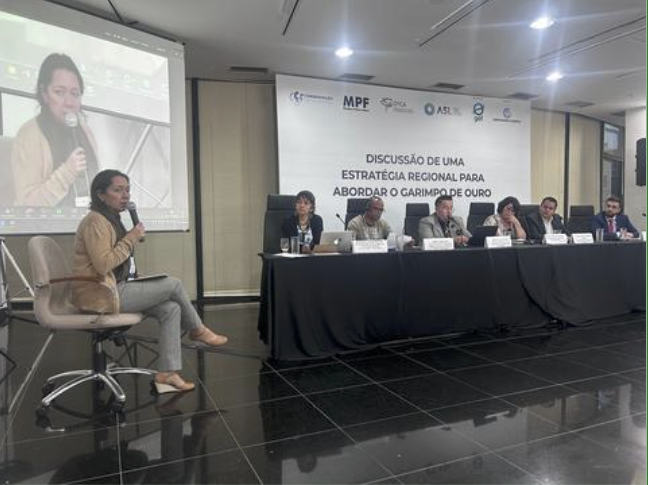
Alessandra Korap, a Munduruku Indigenous community leader from the Munduruku Territory in the Tapajós region, delivered a powerful presentation on the devastating impacts of mercury in her community. She described how mercury is contaminating fish (a primary food source), increasing crime, poisoning children and young mothers, and leaving large areas of land uninhabitable. Her words made the stakes of our conversation painfully clear.
One question has stayed with me: shouldn’t some of these fines be directed back to the communities most harmed by mercury contamination? Compensation, after all, is not just a matter of justice—it’s a necessary part of recovery.
A key feature of the workshop was the Mining Impacts Calculator, a tool developed in partnership with MPF. The calculator quantifies the environmental, social, and economic damages caused by illegal mining and provides a data-driven foundation for both legal enforcement and policy action. In a hands-on session led by Rocio Rodriguez, our program director, participants explored how to adapt the calculator to national contexts, allowing for coordinated regional responses.
As discussions continued throughout the day, a shared understanding emerged: no single country can solve this crisis alone. Mercury pollution, deforestation, and illegal gold flows cross borders. Regional coordination, shared tools, and aligned enforcement strategies are the only way forward.
This workshop was not just an isolated event—it forms part of Brazil’s broader preparations for COP30 in Belém later this year. If we are to meet the Amazon’s challenges with seriousness, these kinds of cross-border, data-informed, and equitable approaches will need to be front and center.
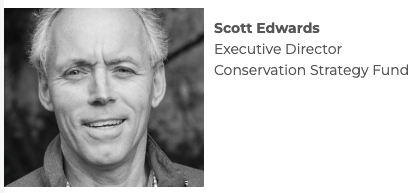
- Log in to post comments

